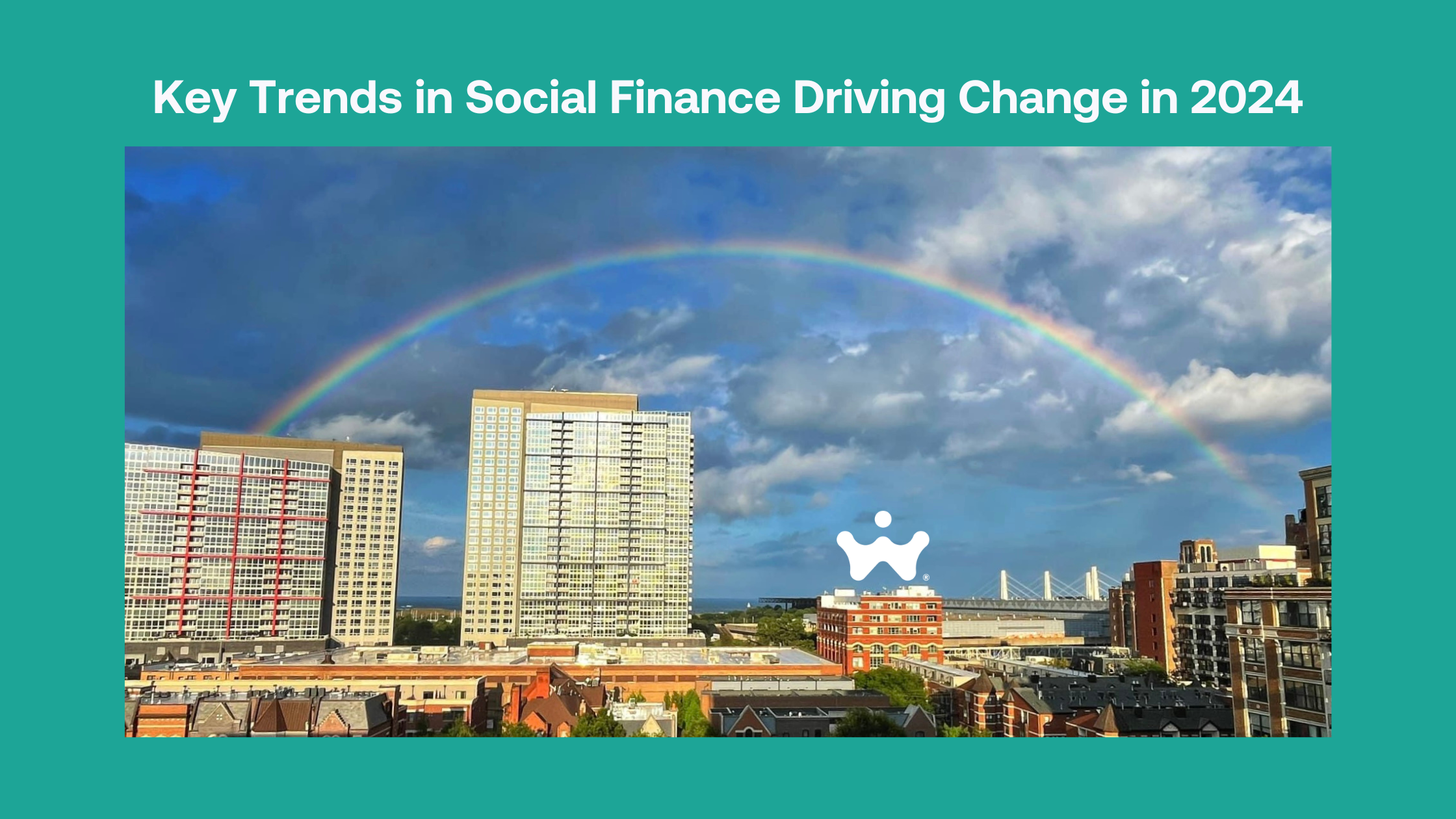What are some of the most significant trends shaping the social finance landscape in 2024?
As social finance rapidly evolves, individuals and institutions look for more ways to generate financial returns while they positively impact society. Social finance is becoming a key part of modern investment strategies as it merges traditional finance with social impact goals. We’re going to share with you what we think are the biggest trends in social finance currently.
1. ESG Investing
One of the most notable trends in social finance is the increasing focus on Environmental, Social, and Governance (ESG) investing. Investors are no longer solely concerned with financial performance—they also want to ensure that the companies they invest in uphold sustainable practices and social responsibility. ESG funds have grown rapidly in recent years as climate change, social inequality, and corporate governance have become top priorities for investors. For example, large institutional investors are increasingly favoring companies that demonstrate a commitment to reducing their carbon footprints and maintaining diversity in leadership roles .
2. Social Bonds
Social bonds are another growing area in the social finance sector. These bonds allow governments, corporations, and organizations to raise funds specifically for projects addressing social issues such as affordable housing, education, and healthcare. The COVID-19 pandemic further accelerated the use of social bonds as governments sought to fund responses to public health challenges and economic recovery initiatives. Investors are drawn to social bonds because they offer a tangible impact on society while still providing a financial return .
3. Fintech
The fintech industry is playing a pivotal role in promoting financial inclusion. With millions of people around the world lacking access to traditional banking services, fintech platforms are offering innovative solutions like mobile banking, microfinance, and peer-to-peer lending. These services are designed to reach underserved communities, particularly in developing markets. By providing access to credit, savings, and investment opportunities, fintech companies are helping more people participate in the financial system  .
4. Decentralized Finance (DeFi)
Decentralized Finance, or DeFi, is emerging as a transformative force in social finance. Built on blockchain technology, DeFi platforms aim to create open financial ecosystems where anyone with internet access can participate in financial activities like borrowing, lending, or trading assets without the need for intermediaries. This democratization of finance has enormous potential for enhancing financial inclusion, particularly in regions where traditional banking infrastructure is underdeveloped. DeFi projects are increasingly exploring how to align their innovations with social impact goals, making this a space to watch  .
5. Corporate Social Responsibility (CSR)
Corporations are also integrating social finance principles into their strategies through Corporate Social Responsibility (CSR) initiatives. Many companies are now aligning their business models with sustainability and social impact, reflecting their commitment to addressing global challenges such as climate change, inequality, and poverty. Corporate impact investing—where companies allocate funds to social or environmental projects while still seeking a financial return—has gained momentum, allowing firms to both enhance their brand image and drive social change .
The Future of Social Finance
As social finance continues to gain prominence, its impact on the global economy and society is expected to grow and we are here for it! Investors, corporations, and governments are increasingly realizing that financial performance and social impact do not need to be mutually exclusive. Stakeholders can foster a more sustainable, equitable future while generating financial returns by prioritizing investments that address social and environmental challenges, .
Shifting focus will be necessary as more people demand greater transparency and responsibility from both the financial and corporate sectors. The trends outlined above illustrate how social finance is evolving and positioning itself as a key player in shaping the future of finance and social good.





